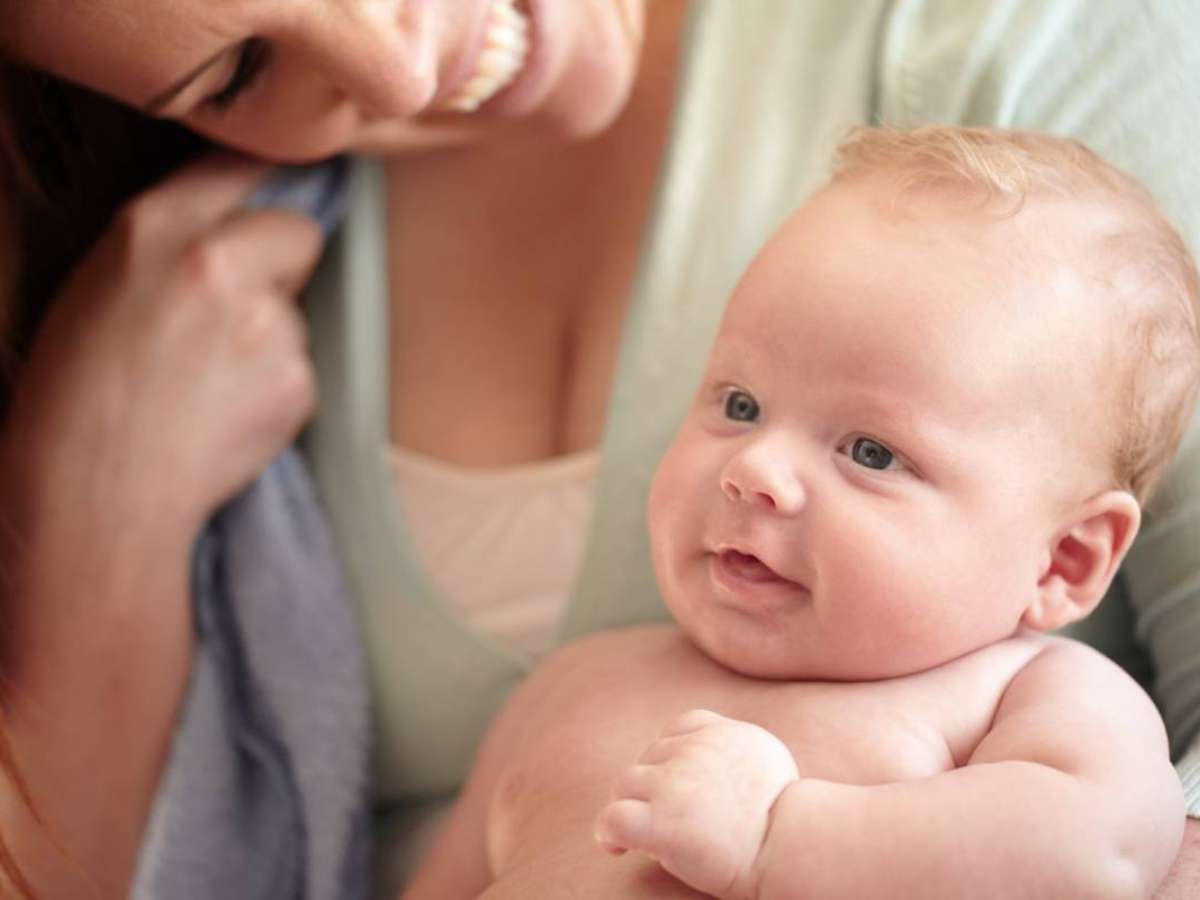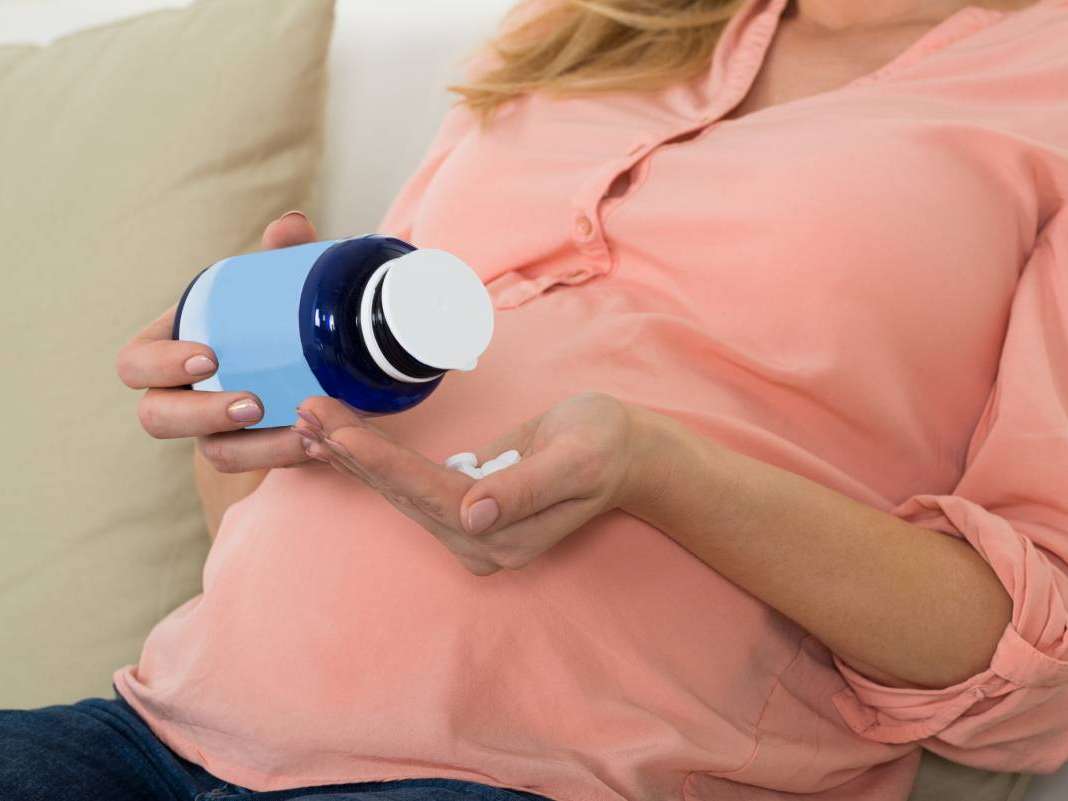As you’re making preparations for your baby’s arrival, you may also want to take some time to learn about things that can happen to you — after childbirth. (I wish I had.)
Postpartum is the time where your body is recovering from the miracle of birth.
As glorious as this may sound, for many women (including myself) there’s nothing wonderful about the following 4 postpartum issues — which typically last 6 weeks or longer:
#1 – Heavier Periods
Load up on sanitary napkins. You’ll need so many of them that you may want to invest in some stock!
After childbirth, your periods may become heavier. For many women, this change is not temporary — it remains true from this point forward.
Along with heavier periods, you may also experience more cramps and possibly even premenstrual symptoms that you never had before.
My periods went from super light and only 3 days long — to heavy. And are now they’re at least a week long.
#2 – Hair Loss
At some point after delivery, you’ll start to shed hair — lots of it!
This is because the hormone that was responsible for your hair growing and not falling out during pregnancy is no longer in high production.
How long does the hairloss last?…
- For many women, it only lasts a few months.
- Others experience hair loss until they stop breastfeeding.
- Still others experience extreme hair loss as a side effect of a malfunctioning thyroid that needs to be checked out.
My postpartum hair loss always seemed to start around 3 months postpartum. It usually lasts until I stop breastfeeding. (I’m still breastfeeding my third child.) My family has gotten used to seeing my lost strands of hair everywhere around the house.
#3 – Mood Swings And Depression
Your body is coming down from a hormone high.
Due to the changing hormone levels, you may feel like you are on an emotional roller coaster from one day to the next. One day, you may feel happy and at peace with the world. The very next day, you may feel angry and tired — for no real reason.
It’s important that you keep track of your moods and your mental state during this time.
If you’re feeling tired, then get more rest to prevent your moods from going south. If your moods don’t seem to improve with more rest, be sure to let your doctor know so they can rule out postpartum mood disorders and depression.
There is nothing wrong with asking for help!
Everyone in my family thought that I would be nicer when I had my last baby. But I was actually grumpier for the first few months — because of everything that was going on. A lot of the time, I was an emotional wreck from trying to keep myself together so no one could tell.
It wasn’t until I came clean with everyone that I felt I couldn’t handle things before they got better. I felt better because I had gotten that off my chest and everyone pitched in more for a little while — so I could better adjust to everything that was going on.
#4 – Post-Baby Weight
Even though you probably can’t wait until you can get back into your pre-pregnancy clothes, don’t be surprised if you can’t do so right away.
After childbirth, you’ll be making a lot of adjustments to having a new baby around and you may not have the time to be concerned about how you look.
Your first wardrobe concern should be comfort. There is nothing wrong with wearing your maternity clothes after baby arrives. You may find that they are more comfortable and attractive for your current shape.
- After my first pregnancy, I was back to my pre-pregnancy shape within a month and I didn’t do a thing.
- After my second baby, it took me 2 years to drop most of my pregnancy weight gain.
- After my last one, even though it hasn’t been a year yet, I am very slowly losing some of my pregnancy weight. But I am not really trying to either.
No matter how far along you are in your pregnancy, just know that postpartum changes are coming.
Many of them are normal, but if you have any concerns or doubts, don’t hesitate to talk with your doctor.
What Is Postpartum Exactly?
The postpartum recovery period is often called the “4th stage of labor.” It has 3 distinct but continuous phases:
- The initial or acute period involves the first 6–12 hours postpartum. This is a time of rapid change with a potential for immediate crises such as postpartum hemorrhage, uterine inversion, amniotic fluid embolism, and eclampsia.
- The second phase is the subacute postpartum period, which lasts 2–6 weeks. During this phase, the body is undergoing major changes in terms of hemodynamics, genitourinary recovery, metabolism, and emotional status. Nonetheless, the changes are less rapid than in the acute postpartum phase and the patient is generally capable of self-identifying problems. These may run the gamut from ordinary concerns about perineal discomfort to peripartum cardiomyopathy or severe postpartum depression.
- The third phase is the delayed postpartum period, which can last up to 6 months. Changes during this phase are extremely gradual, and pathology is rare. This is the time of restoration of muscle tone and connective tissue to the prepregnant state. Although change is subtle during this phase, a womanʼs body is nonetheless not fully restored to prepregnant physiology until about 6 months postdelivery.
More About Postpartum Care & Recovery
In addition to the links I’ve included above, here are some other resources to help you better understand postpartum recovery issues:
- What Happens At The 6-Week Postpartum Checkup
- How To Make A Postpartum Care Kit For New Moms
- Crotch Care 101: The Truth About Postpartum Recovery
- Postpartum Care – What To Expect After A Vaginal Delivery
- What Postpartum Recovery Is Really Like
I’m a stay-at-home mom and writer. Having experienced the joys and discomforts of pregnancy 3 times, I have a lot of advice to offer expecting mothers. I’m committed to providing new moms with an in-depth and honest view on pregnancy, so you’ll have a better idea of what to expect and a good feel for what pregnancy is really like.





